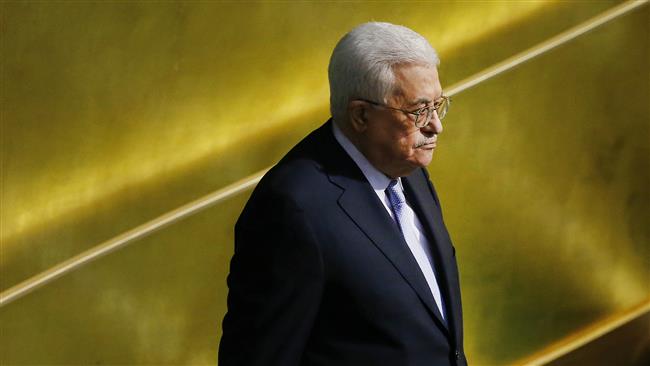
RNA - “On the 100th anniversary of the Balfour Declaration, the British government should take the opportunity to make things right,” the Palestinian president wrote in an opinion piece published by The Guardian on Wednesday.
Signed by then UK Foreign Secretary Arthur James Balfour on November 2, 1917, the declaration is considered a prelude to the Israeli occupation of Palestinians’ homeland in 1948. Palestine was under British rule when Balfour issued the policy statement.
“The physical act of the signing of the Balfour Declaration is in the past – it is not something that can be changed. But it is something that can be made right. This will require humility and courage. It will require coming to terms with the past, recognizing mistakes, and taking concrete steps to correct those mistakes,” Abbas wrote.
“It is time for the British government to do its part. Concrete steps towards ending the occupation on the basis of international law and resolutions, including the most recent UN security council resolution 2334 (which condemns Israeli settlement construction), and recognizing the state of Palestine on the 1967 border, with East Jerusalem [al-Quds] as its capital, can go some way towards fulfilling the political rights of the Palestinian people,” the article pointed out.
Abbas argued that Balfour negated the Arab-Palestinian right to self-determination and created severe tensions between European Jewish immigrants and the native Palestinian population by promising “a land that was not his to promise” to the Zionist Federation.
“The creation of a homeland for one people resulted in the dispossession and continuing persecution of another – now a deep imbalance between occupier and occupied. The balance must be redressed, and Britain bears a great deal of responsibility in leading the way,” the article pointed out.
The Palestinian president went on to enumerate some of the “devastating” consequences of the Balfour Declaration.
“Out of more than 12 million Palestinians who have been scattered around the world, over 6 million still live in exile, nearly 1.75 million who managed to remain in their homes face institutionalized discrimination, nearly 2.9 million live in the West Bank under a “draconian military occupation-turned-colonization” and two million live in the Gaza Strip which is “an open prison subjected to regular destruction through the full force of Israel’s military apparatus,” Abbas wrote.
The article comes a week after British Prime Minister Theresa May defended the Balfour Declaration, saying, “We are proud of the role that we played in the creation” of Israel, pledging to mark the document’s centenary “with pride” on November 2.
In response, Nabil Shaath, an aide to Abbas, said that Palestine is planning to file a complaint against the UK for being behind the displacement of Palestinian people.
Every year, as the anniversary of the declaration’s signing approaches, Palestinians hold numerous protest rallies against Britain, while Israel and its allies hold celebrations to mark the occasion.
UK’s Labour Party leader Jeremy Corbyn has announced that he would skip the government’s “proud” celebrations, which will be attended by Israeli Prime Minister Benjamin Netanyahu.
Speaking at an international conference on Palestine, Gaza-based Hamas chief Ismail Haniyeh said the Israeli occupation of Palestine will not last for the regime to celebrate a second centennial of its creation, noting that the Zionist project on the Palestinian territory had no future amid stiff resistance by the nation in the face of occupation.
Meanwhile, a Roderick Balfour, a great-great-nephew of Lord Arthur Balfour, told The Telegraph last weekend that Israel was in breach of his ancestor’s proclamation by failing to protect the rights of Palestinians.
Emboldened by the Balfour Declaration and the ensuring Western support, Israel captured huge swathes of Arab land in a war in 1948, and then proclaimed its existence.
In 1967, it proceeded to capture more Palestinian territory in another war. It then started propping up scores of settlements across the land in a move to gradually annex it.
Tel Aviv has defied all international condemnations of its settlement activities, including outright denunciation by the United Nations.
847/940